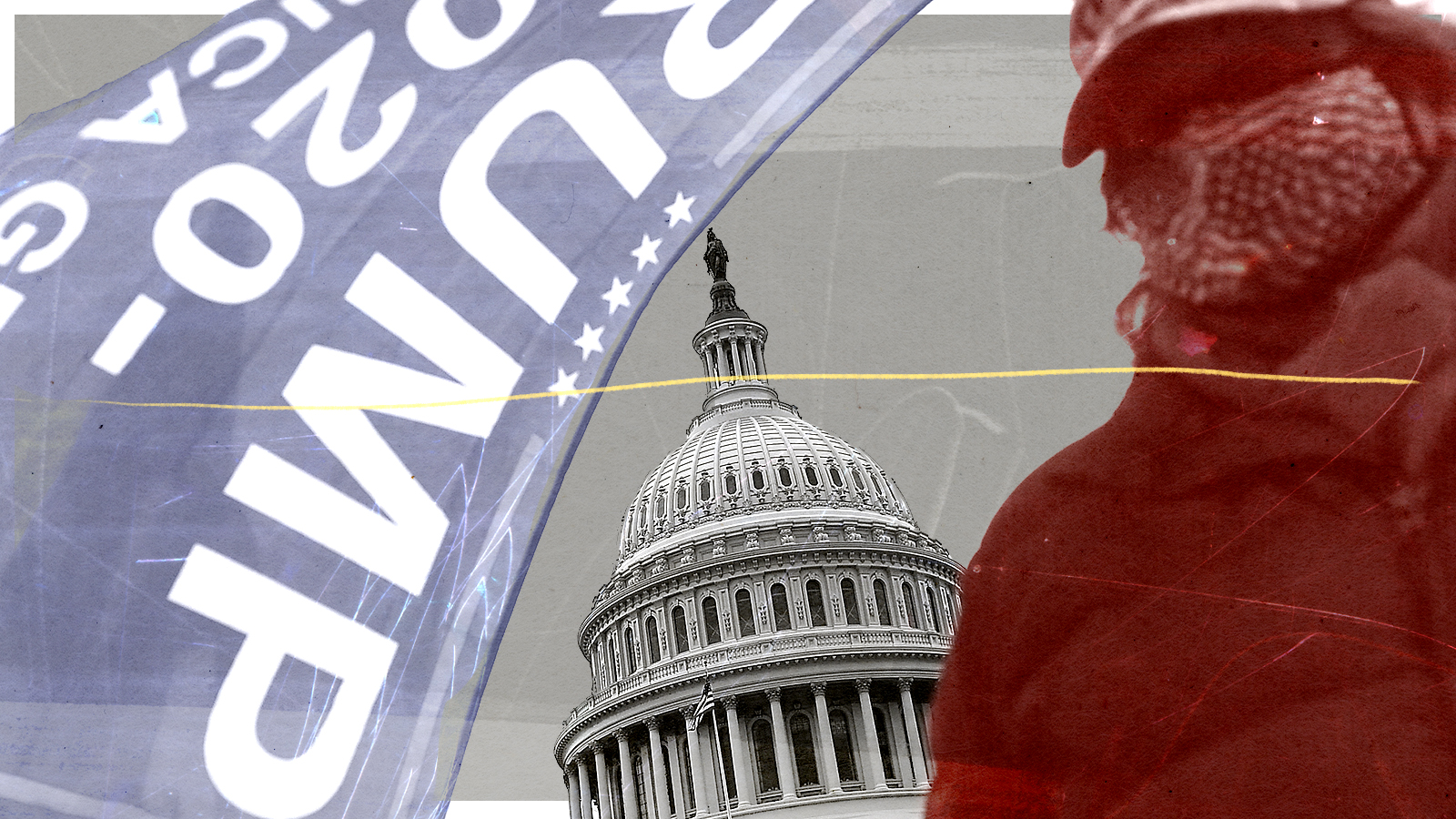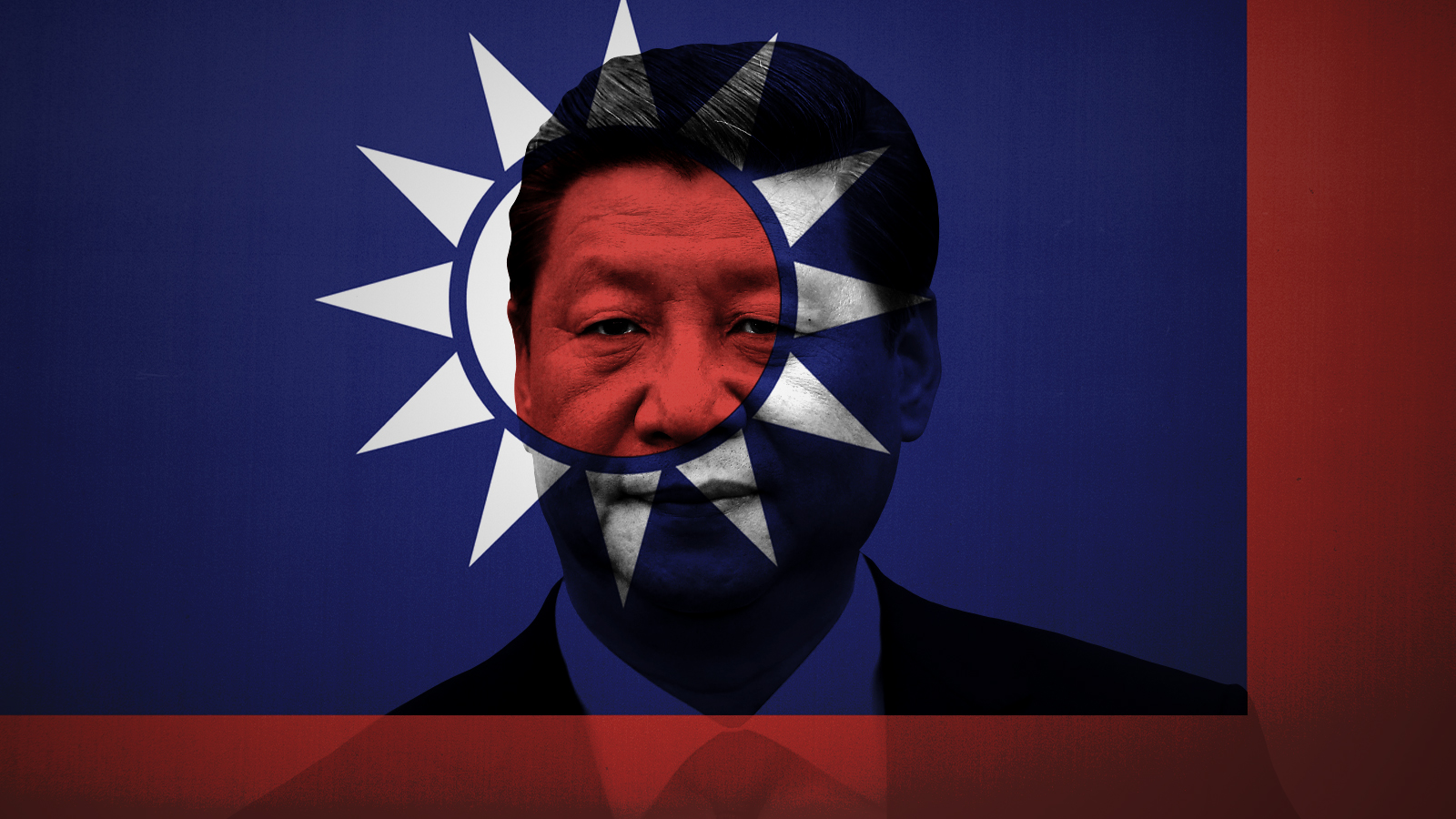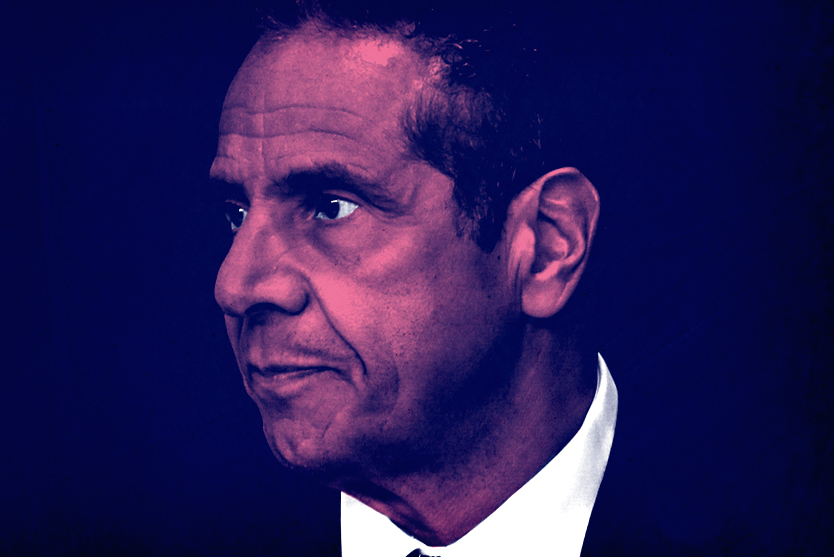The dangerous vigilantism that fueled Jan. 6


A free daily email with the biggest news stories of the day – and the best features from TheWeek.com
You are now subscribed
Your newsletter sign-up was successful
It didn't take long following the shocking events of Jan. 6 for journalists to begin referring to what transpired on Capitol Hill that afternoon as an "insurrection." Some on the right dissented from the term, insisting it was merely a popular protest against election fraud. Yet the term has stuck, in my own writing as well as in that of most other analysts.
But what if the storming of Congress wasn't an insurrection at all? What if, instead, it was an act of vigilantism?
That's the provocative thesis of author Sam Tanenhaus in a bracing essay recently published in The Washington Post. Relying on a distinction proposed by historian Garry Wills, Tanenhaus distinguishes between militant protest that's directed against a government deemed too repressive, and protest animated by the conviction that authorities aren't repressive enough. The latter protesters become vigilant when they believe (in Wills' words) "the government is too slow, indifferent, or lax."
The Week
Escape your echo chamber. Get the facts behind the news, plus analysis from multiple perspectives.

Sign up for The Week's Free Newsletters
From our morning news briefing to a weekly Good News Newsletter, get the best of The Week delivered directly to your inbox.
From our morning news briefing to a weekly Good News Newsletter, get the best of The Week delivered directly to your inbox.
The archetypal example is the lynch mob, in which a group of enraged whites in the segregationist South would hunt down a Black man and exact extralegal punishment, for crimes real or imagined, with a noose. The murder of Ahmaud Arbery by three white vigilantes in Georgia is a recent example, but so is Kyle Rittenhouse's killing of two men in Kenosha, Wisconsin, during protests there in the summer of 2020 — and even more so due to Rittenhouse's transformation after the shooting, and especially in the weeks since his acquittal, into a kind of folk hero feted by rabble-rousers and grifters (and a former president) on the right.
Does the violence directed against Congress last January fit this model, as Tanenhaus suggests? I think it does. The mob gathered on the Washington Mall that day wasn't resisting overreach by the government. Rather, it was demanding the government slip the restraints of constitutional procedure to deliver a result for which there was no legal or factual justification. The uprising was therefore the expression of a hope that state power would be used in an unprecedented way to deliver justice for the sitting president and his supporters. It was a call for tyranny, not an act of resistance to it.
That's a distinction we would be wise to keep in mind as we do our best to find our way through the political and legal thickets of the next few election cycles.
A free daily email with the biggest news stories of the day – and the best features from TheWeek.com
Damon Linker is a senior correspondent at TheWeek.com. He is also a former contributing editor at The New Republic and the author of The Theocons and The Religious Test.
-
 How to Get to Heaven from Belfast: a ‘highly entertaining ride’
How to Get to Heaven from Belfast: a ‘highly entertaining ride’The Week Recommends Mystery-comedy from the creator of Derry Girls should be ‘your new binge-watch’
-
 The 8 best TV shows of the 1960s
The 8 best TV shows of the 1960sThe standout shows of this decade take viewers from outer space to the Wild West
-
 Microdramas are booming
Microdramas are boomingUnder the radar Scroll to watch a whole movie
-
 The real reason the Pentagon is sounding the alarm over China's hypersonic missile
The real reason the Pentagon is sounding the alarm over China's hypersonic missileTalking Point
-
 China's ominous incursions over Taiwan
China's ominous incursions over TaiwanTalking Point
-
 Is Bibi-ism possible without Bibi?
Is Bibi-ism possible without Bibi?Talking Point
-
 The Derek Chauvin solitary confinement predicament
The Derek Chauvin solitary confinement predicamentfeature
-
 Keith Ellison's strategy in the Derek Chauvin trial paid off
Keith Ellison's strategy in the Derek Chauvin trial paid offfeature
-
 Injustice for everyone?
Injustice for everyone?feature
-
 If Andrew Cuomo won't resign, he must be impeached
If Andrew Cuomo won't resign, he must be impeachedfeature
-
 Did Republicans just sign their midterms death warrant?
Did Republicans just sign their midterms death warrant?feature
